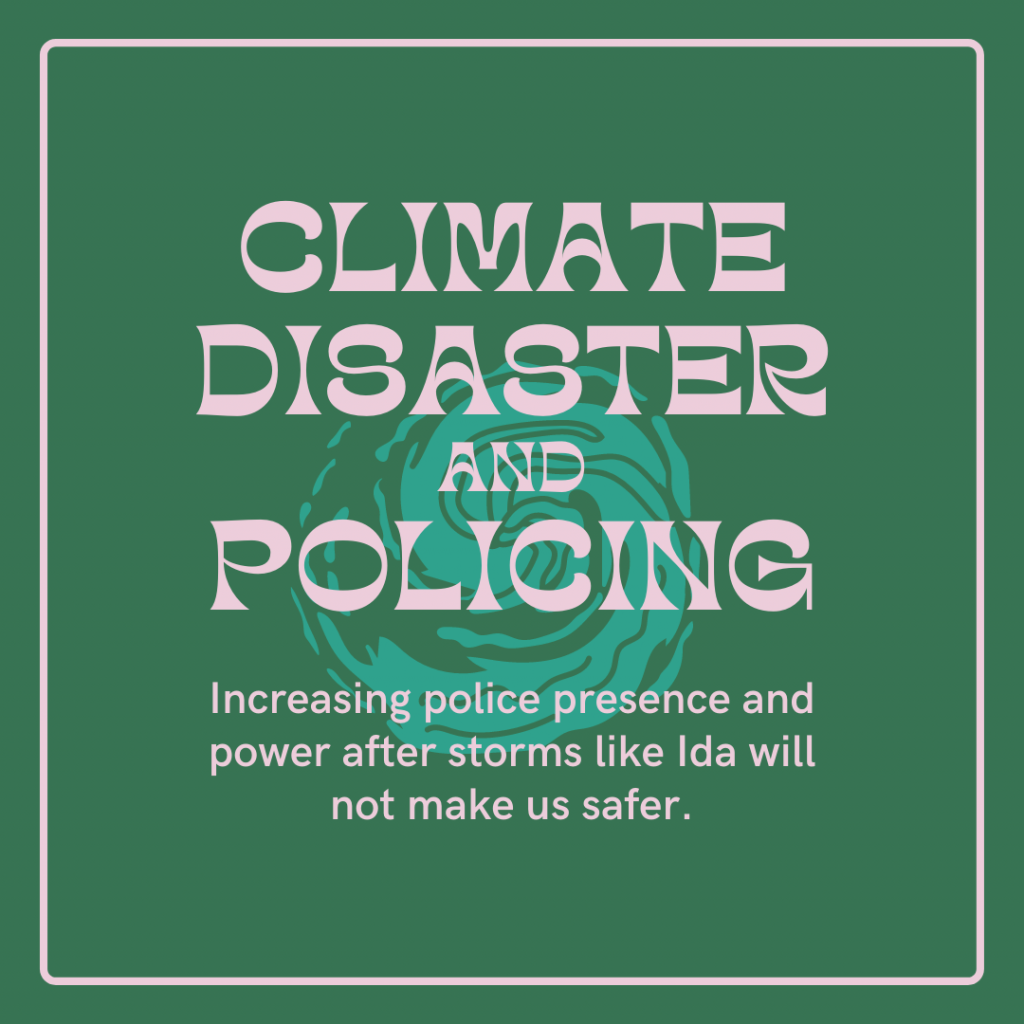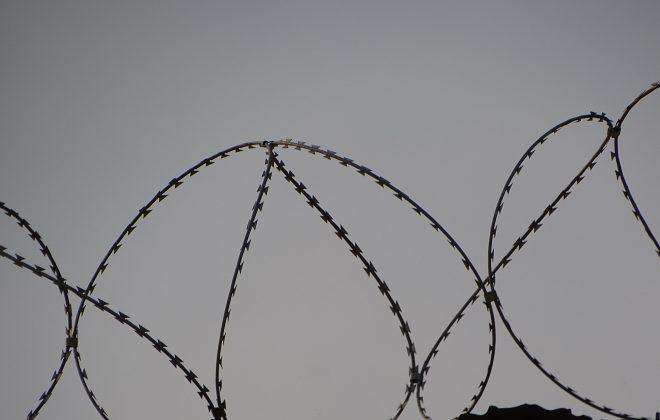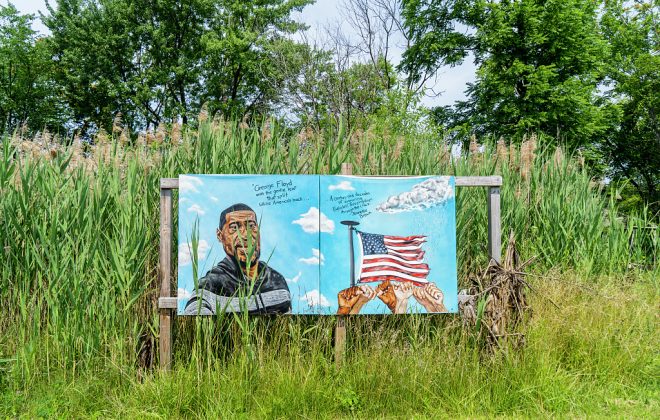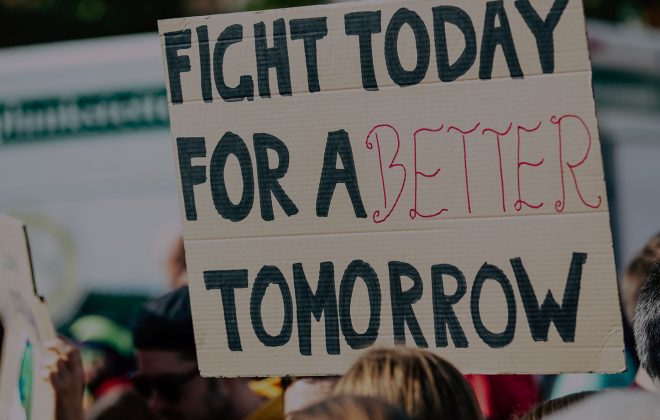Climate Disaster and Policing
While NPAP is a national organization, our office and many of our staff are based in New Orleans. Working and living in the Gulf Coast makes us uniquely aware of a persistent national pattern: police capitalizing on times of crisis to abuse power and further target communities already at the forefront of over-incarceration, over-policing, and climate disaster.
As climate disasters increase in frequency and force, so will our contact with law enforcement. In the days and weeks since the storm, we have seen again the ways in which climate disaster exacerbates the flaws and shortcomings of our current policing systems. As neighbors and communities stepped in to help one another, police departments prioritized arrests and curfews, criminalizing people trying to survive by labeling them as “looters” or “criminals.”
Exaggerating “lawlessness” in the wake of disaster enables police departments to increase their discretion and power over whom they arrest and how much force they use. Results include racial profiling, failure to respond appropriately to calls of mental distress, and the use of excessive force and brutality, all during a time of dire need. The instability and stress that follow climate disasters are used by police and government actors to justify unilateral actions aimed at “restoring order”. Actions that would otherwise require public input and, in its absence, generate public outcry, are overlooked or allowed to slide as communities necessarily prioritize meeting more foundational needs that have been disrupted by the catastrophe.
The communities who suffer at the hands of this over-policing are the same as those at the forefront of climate disaster. They are Black and Brown, Indigenous, queer, Trans, poor, disabled, unhoused. Targeting these communities under the guise of “safety” is not only unhelpful, it is inhuman, and it does not make us safer. In fact, this strategy compounds loss and suffering, putting meaningful recovery even further out of reach.
Like all aspects of our current carceral system, over-policing in the wake of climate disaster unjustly punishes suffering individuals for the failures of the state. By targeting “criminals,” police departments create a false sense of safety while distracting from the real cause of violence and distress: a lack of adequate and timely resources.
It is too soon to know every impact and instance of over-policing and police failure and harm as a result of this most recent storm. What we do know is that where police have responded with punishment, people across the state have responded with care. People are still in dire need. If you are able, please consider giving to these organizations working in climate response and/or aid for communities most targeted by over-policing and incarceration:







